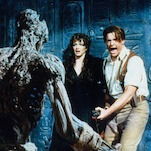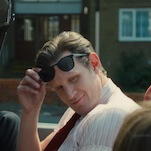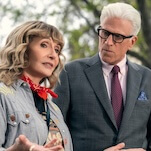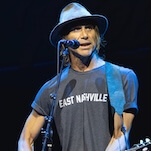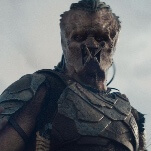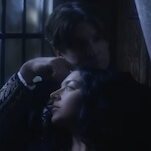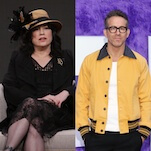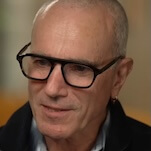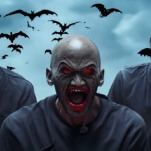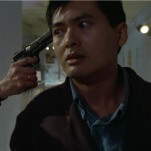King Khan digs voodoo and "hobo-sexuality"

Though his on-stage antics have made him famous, off-stage that same devil-may-care attitude of garage rocker King Khan has gotten him in some mighty hot water—specifically this past November, when Khan was on tour with his side gig, The King Khan And BBQ Show, and Arish “King” Khan and Mark “BBQ” Sultan were arrested with tour manager Kristin Klein while driving through Kentucky. He's since returned to normal—or, as normal as it gets for Khan—and gotten back to touring with his soul-punk group, King Khan And The Shrines, which makes a stop through Emo's on April 5. The A.V. Club spoke to the newly liberated Khan about his “hobo-sexuality,” the influence of voodoo on his music, and smoking dope with GZA.
The A.V. Club: You once said, “When I’m on tour, I’m neither homosexual or heterosexual—I’m hobo-sexual.” What’s a hobo-sexual?
KK: It’s like a hobo’s mentality of sexuality. Because you’re on the road, and if you see a piece of cheese with holes in it, there’s a chance for creative sexuality.
AVC: You’re a married man with two kids at home. Are you a different person on the road?
KK: Definitely. It’s a difficult task. It gets harder and harder. But it still has its perks. In the past I’ve toured a little too much so I haven’t been able to be a dad enough to my kids. I’m excited to go home. At the age the kids are now, they’re more fun than most of the people on tour. They’re 6 and 9 years old. They’re really funny. They’re getting into astronomy now. My older daughter is learning about it in school and stuff, so she’s telling me all these facts about space over the phone.
AVC: You’ve mentioned Little Richard as an influence, particularly how he tweaked gender identities in his performances. When did you discover him?
KK: I remember my mom used to listen to the oldies station whenever we’d drive around. I remember hearing Chuck Berry and Bo Diddley and Little Richard, and really digging it. Then I got into metal for a while, and went through a classic-rock period. I remember hearing the Ramones when I was a kid and really liking that, too. But Little Richard is a hero to me. I’ve heard from people in the R&B world—like old people—that Little Richard was one person who never changed. James Brown, too. They were always pretty true to what they were in the beginning, and didn’t sell out, and were always crazy. I totally admire that.
AVC: Little Richard managed to be both weird and popular.

